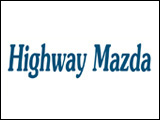The Manager of PigTrace Canada says the mandatory reporting of swine movements in Canada is already demonstrating its value in terms of tracking the movement of disease.
Effective July 1, 2014 under changes to Canada’s Health of Animals Regulation the reporting of the movements of live swine in Canada become mandatory.
Under the new regulation both the shipper and receiver of pigs must report the source and destination of the load of animals, the license plate number of the truck that moved them, the date and time they were loaded, the number of animals and any official animal identification numbers on them to the PigTrace Canada database within seven days.
Jeff Clark, the Manager of PigTrace Canada, an initiative of the Canadian Pork Council, notes CFIA inspectors have started tracking compliance.
We’ve really asked CFIA, let’s take an educational approach but it is a law so CFIA inspectors have the right to issue letters of non-compliance.
There will be a fine structure eventually and my guess is by early 2016 we’ll have fines come into effect but, the way I look at it, this is really a value for industry.
It’s in our best interest to do this for disease protection, disease management if we have issues we want to get on top of those things, we want to save ourselves some money.
And then I’m already seeing this.
There is some market interest in terms of branding the Canadian product.
Does traceability sell?
I don’t know but there is interest in it.
As we build up information and as we actually do this we’re going to add value.
I think we have to build the program, build the information, get it happening and then we’ll see where it takes us.
I think there’s big value to come.
Clark notes data collected through PigTrace was used for a PED investigation in Manitoba.
He says it took about 15 seconds to run that report so there is value there in terms of getting information quickly and as time goes on and we have emergencies come about it’s going to be a valuable tool.



